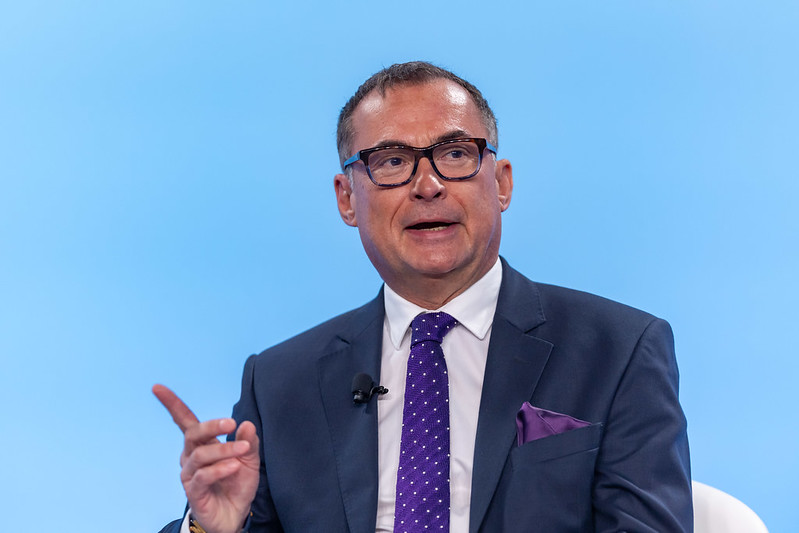By David Barwick - FRANKFURT (Econostream) – European Central Bank Governing Council member Joachim Nagel on Tuesday said that the ECB was at last within striking distance of its inflation objective and heading in the right direction.
In remarks at research institute ZEW in Mannheim, Germany, Nagel, who heads the German Bundesbank, said, ‘The target is finally within reach. We are on the right track, albeit it remains rocky.’
In this respect, Nagel noted the renewed rise of core inflation and the ‘surprisingly strong’ increase in service sector price growth,
While the ECB would ensure a sustainable return to 2% inflation, there was still no knowing whether the Governing Council would cut rates again next week, he said.
The ECB’s approach, he said, was well suited to the current situation in which ‘inflation could be higher or lower than recently expected, depending on the outcome of the tariff dispute and other factors such as the exchange rate, service prices, or fiscal stimulus packages.’
Setting policy on a meeting-by-meeting, data-dependent basis was more appropriate than ever, he said. There could be no pre-committing to any particular rate path, he said.
Monetary policymakers had to be ‘particularly vigilant’ with regard to inflation expectations, he said. Medium-term expectations among households and firms had lately risen again, he said.
‘Concerns about rising prices due to tariff policy therefore appear to be troubling not only the Americans’, he said. ‘We will keep a close eye on this development.’
US trade policies seemed likely to result in ‘significant losses’ for the German and euro area economies, he said.
According to a Bundesbank estimate based on the mid-April status quo, euro area growth could slow by half a percentage point in the medium term, he said. What would become of inflation was however unclear, he said.
‘On the one hand, weaker growth tends to dampen prices’, he said. ‘Potential diversionary effects from more goods from China on the European market could also lower inflation somewhat. On the other hand, possible retaliatory tariffs from the EU fuel inflation.’
As for increased government spending, the ECB had said last month that this could lead to higher medium-term inflation, he noted. However, numerous ‘imponderables’ related to such spending hampered forecasts, he said.
While a gradual approach to monetary policy could be appropriate under high uncertainty, this was not the case ‘where waiting increases the risk of a particularly unfavourable outcome’, he said.
This could be the case when inflation expectations threatened to become unmoored, he said, a situation calling for ‘decisive action’.
‘It is therefore clear that monetary policymakers, as risk managers, are well advised to consider robust control approaches when making decisions in particularly uncertain times’, he said.
In other comments, Nagel observed with respect to an artificial intelligence model of the Bundesbank that assesses texts that ‘this speech was classified as monetary policy "neutral."’

